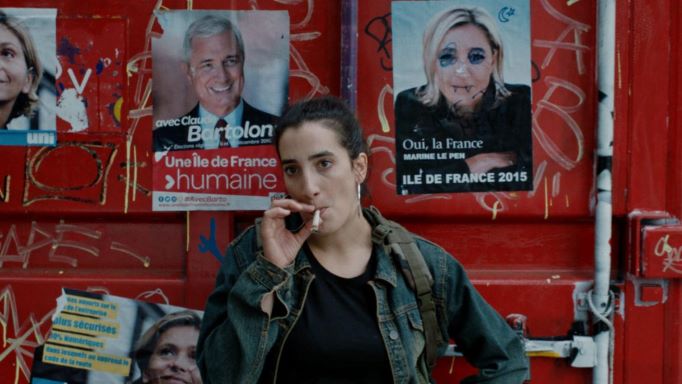Hasna Aït Boulahcen was called France’s first female suicide bomber four days after the horrific Paris terrorist attacks in 2015, which culminated in a police raid that killed her and the jihadists she was hiding with. But the initial reports were wrong. Dina Amer, then a journalist with Vice News, at first also thought the 26-year-old French-Moroccan Boulahcen was the suicide bomber. Her interviews with Boulahcen’s family and friends informs her incisive and unsettling debut feature, You Resemble Me, a challenging corrective that explores how this young woman ended up becoming radicalized.
We first see Boulahcen as a nine-year-old girl living with her siblings and mother in a Paris suburb, before her short-tempered mother tosses her out of the cramped apartment when Boulahcen stands up to her. She takes her younger sister Mariam with her, and they wander the city streets. After living on their own for days and stealing from a fruit stand, they are taken in by child services and separated, each to live with a different foster family: It was the third time in less than a year they had run away.
A decade later, Boulahcen has trouble fitting in, feeling adrift without her sister, who feels almost like a twin despite the three-year age difference. Heavily into drugs, she often trades sex for money to keep her habit going. She tries to join the army, but in a powerful scene of humiliation, the interviewing officer (named Ahmed) bluntly tells her she’s not army material—ostensibly because she hasn’t earned a diploma and can’t identify on a map where French army bases are located. This leads her to the start of her radicalization when she reconnects online with an older cousin after seeing him on the news described as a suspect in a series of failed terrorist attacks.
Amer records Boulahcen’s seemingly inevitable trajectory in a clinical, documentary-like fashion—this story needs no melodramatic flourishes or sentimental moments. After the police raid that transforms her simultaneously into a martyr and a hated terrorist, Amer adroitly cuts to actual news footage of the initial erroneous reports and then, later on, to the accurate narrative: Boulahcen can be heard screaming to be allowed to come out of the apartment before the device detonates. It’s also later reported that one of the male jihadists had set off the device.
In the epilogue, Amer films Boulahcen’s family members discussing her life and reacting to what happened, including her sister Mariam, who notes that initial news reports showed a photo of her, not Hasna, among reporting other misleading information. Mariam is given the film’s final words, “Am I Muslim? Am I French? Am I crazy?”
Boulahcen is played by different actresses at different stages in her young life, including during many fraught moments when, through digital effects, one actress subtly morphs into another within a single take. It’s a perfect visualization of a personality that’s been broken into shards.







Leave A Comment